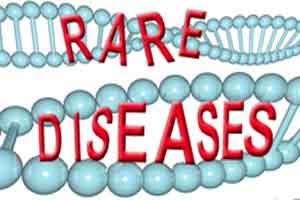- Home
- Medical news & Guidelines
- Anesthesiology
- Cardiology and CTVS
- Critical Care
- Dentistry
- Dermatology
- Diabetes and Endocrinology
- ENT
- Gastroenterology
- Medicine
- Nephrology
- Neurology
- Obstretics-Gynaecology
- Oncology
- Ophthalmology
- Orthopaedics
- Pediatrics-Neonatology
- Psychiatry
- Pulmonology
- Radiology
- Surgery
- Urology
- Laboratory Medicine
- Diet
- Nursing
- Paramedical
- Physiotherapy
- Health news
- Fact Check
- Bone Health Fact Check
- Brain Health Fact Check
- Cancer Related Fact Check
- Child Care Fact Check
- Dental and oral health fact check
- Diabetes and metabolic health fact check
- Diet and Nutrition Fact Check
- Eye and ENT Care Fact Check
- Fitness fact check
- Gut health fact check
- Heart health fact check
- Kidney health fact check
- Medical education fact check
- Men's health fact check
- Respiratory fact check
- Skin and hair care fact check
- Vaccine and Immunization fact check
- Women's health fact check
- AYUSH
- State News
- Andaman and Nicobar Islands
- Andhra Pradesh
- Arunachal Pradesh
- Assam
- Bihar
- Chandigarh
- Chattisgarh
- Dadra and Nagar Haveli
- Daman and Diu
- Delhi
- Goa
- Gujarat
- Haryana
- Himachal Pradesh
- Jammu & Kashmir
- Jharkhand
- Karnataka
- Kerala
- Ladakh
- Lakshadweep
- Madhya Pradesh
- Maharashtra
- Manipur
- Meghalaya
- Mizoram
- Nagaland
- Odisha
- Puducherry
- Punjab
- Rajasthan
- Sikkim
- Tamil Nadu
- Telangana
- Tripura
- Uttar Pradesh
- Uttrakhand
- West Bengal
- Medical Education
- Industry
Delhi state government takes a step forward for rare diseases

New Delhi: As an important step towards expediting the process of providing treatment to rare disease patients, the Delhi state government, in the High Court, has proposed the setting up of a Technical cum Administrative Committee for rare diseases.
It will also set up a state corpus for the treatment of rare disorders. The government of India has allocated Rs. 100 crore corpus for these disorders under the national policy for rare diseases and would contribute funds towards the states in the ratio of 60:40.
One of the significant mandates of the committee includes identification and accreditation of institutions which will carry out the diagnosis and treatment of rare conditions. Moreover, there will also be a Rare Disease Board and will review the patient applications and handle other technical details.
The same would then be forwarded to the state technical committee which will accordingly decide upon the funding of a particular patient. The applications which the state board will review would be submitted to a website which is being created by the central government as a part of the national policy.
Commenting on the development, Social Jurist Advocate Ashok Agarwal said, "This is a very encouraging step by the state government for ensuring that the patients receive timely treatment. What would now be done is that patients' applications would now be processed by the state level technical committee and would then be sent to the central technical committee. This way, the process would be streamlined and will result in providing the patient's treatment without further loss of time."
The committee would include senior doctors from renowned institutions like AIIMS and MAMC and will be chaired by Principal Secretary (Health). With respect to the amount required for the initial corpus, the representatives from AIIMS and MAMC would provide an estimate on the basis of the current load of rare disease patients at the respective institutions.
The High Court has directed that the committee and rare disease board meet once every three months.
Medical Dialogues Bureau consists of a team of passionate medical/scientific writers, led by doctors and healthcare researchers. Our team efforts to bring you updated and timely news about the important happenings of the medical and healthcare sector. Our editorial team can be reached at editorial@medicaldialogues.in.


